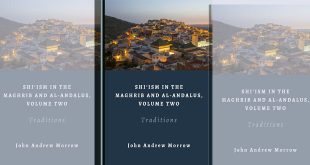The Pre-Hawza course is a universal introductory course to various Islamic studies which are important to know for every Muslim.
Muslim Congress PreHawza announced commencement of the Prehawza Fall 2016 online classes. Classes will begin on Friday, September 2, 2016. All classes are in English and are held weekly on the same day based on Eastern Standard Time (EST) as indicated below.
The Pre-Hawza course is a universal introductory course to various Islamic studies which are important to know for every Muslim. This course is beneficial for two groups:
- Those who want to study in traditional seminary school (The Hawza); this course familiarizes them with the teaching method, curriculum and prerequisites of the seminary.
- Those students (high school or college graduated) who want to have deep awareness of Islam.
Length and Form of the Course:
This course will be ideally conducted in four semesters consisting of 36 credit hours. All courses are in English. A certificate of Primer Course of Traditional Islamic Sciences will be awarded to the participants upon completion, which is approved by the Traditional Seminary School.
The Prehawza courses are as follows:
Qur’an Recitation: Mon | 9:30 – 11 pm EST | H.I. Mohsin Naqvi
Islamic Theology 1: Sat | 11:30 am – 1 pm EST | H.I. Ali Aqib Jaffry
Islamic Theology 2: Sun | 11:30 am – 1 pm EST | H.I. Shamshad Haider
Islamic Law 1: Sun | 11:30 am – 1 pm EST | H.I. Ali Aqib Jaffry
Islamic Law 2: Mon | 9:30 – 11 pm EST | H.I. Assad Dharsi
History of Islam 1: Fri | 9:30 – 11 pm EST | H.I. Assad Dharsi
Qur’anic Vocabulary 1: Tue | 9:30 – 11 pm EST | H.I. Haider Naqvi
Islamic Ethics (Discipline of the Prayers): Tue | 9:30 – 11 pm EST | H.I. Hyder Shirazi
For Official Website Click Here.
 Ijtihad Network Being Wise and Faithful Muslim in the Contemporary World
Ijtihad Network Being Wise and Faithful Muslim in the Contemporary World
